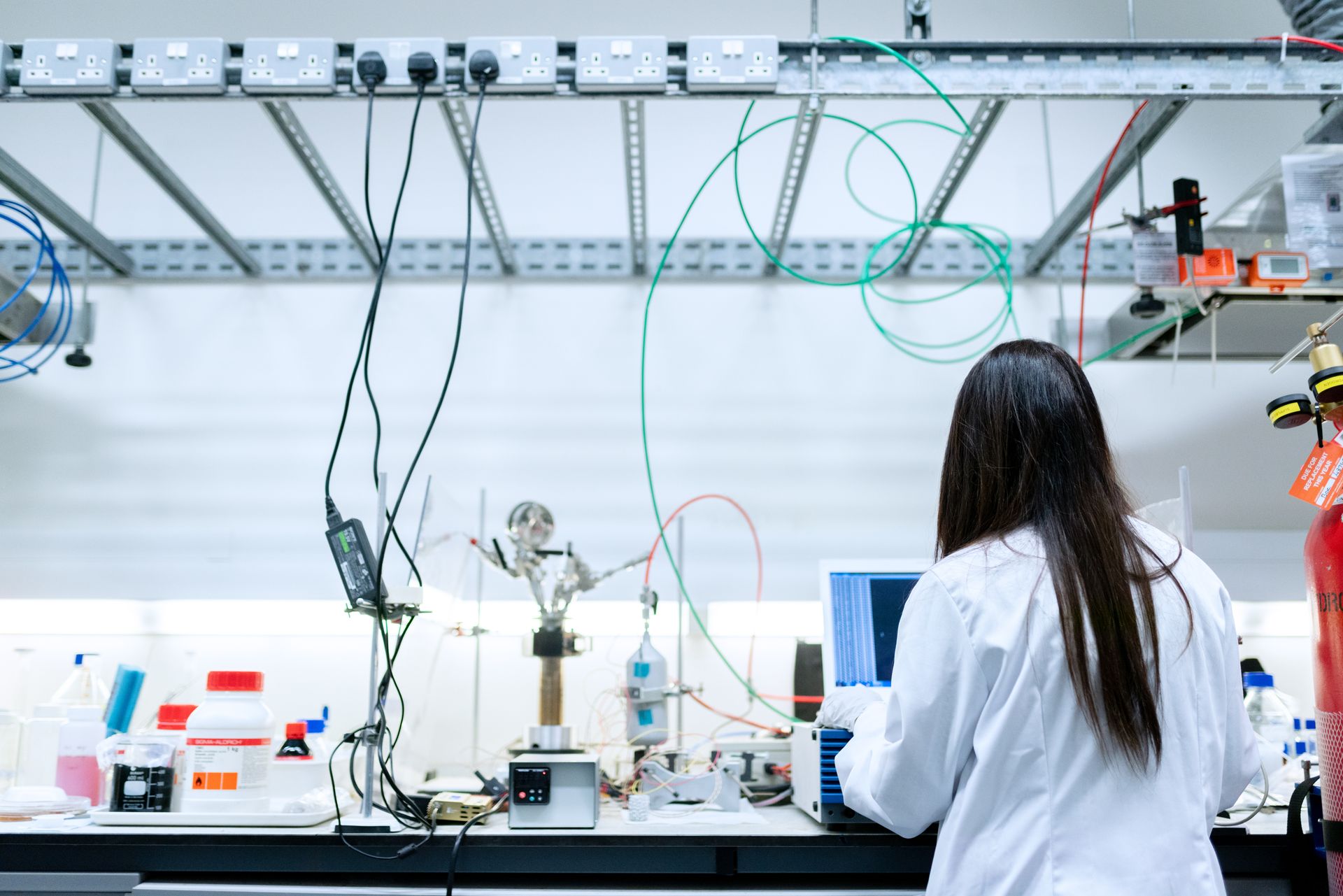Microfluidics: Definition and Challenges
Microfluidics is a field of physics that aims to study and manipulate fluids at the microscopic scale. Its goal is to develop systems that can control and measure the movement and behavior of fluids at this scale.
The challenges of microfluidics are multiple and varied. It can be used in many fields, such as medicine, chemistry, agriculture, environment, etc.
Components of microfluidics
The components of microfluidics are the elements that allow the implementation of microfluidic systems. They include in particular:
- Microchannels, which are channels of very small dimension (on the order of a few micrometers) used to guide and control the movement of fluids.
- Microvalves, which allow controlled opening or closing of microchannels, in order to regulate the flow of fluids.
- Micropumps, which allow for the movement of fluids through microchannels by means of reciprocating motions.
- Sensors, which allow for the measurement of physical quantities (pressure, flow rate, concentration, etc.) in microchannels.
Microfluidic control
Microfluidic control involves controlling the movement and behavior of fluids in microfluidic systems. This can be achieved in different ways, depending on the desired objectives:
- By using microvalves and micropumps to adjust the flow and direction of fluids.
- By modifying the dimensions and shapes of microchannels to influence the speed and shape of flow.
- By using sensors to measure certain physical quantities in real-time and adjusting the control accordingly.
Testing of microfluidic components
To ensure the quality and reliability of microfluidic components, it is necessary to test them under controlled conditions. Several methods can be used for this:
- Laboratory tests, which allow for the measurement of component characteristics under simulated operating conditions.
- Real-world testing, which allows for the components to be tested in their final operating environment (for example, by integrating the components into a complete microfluidic system and running it).
- Durability testing, which aims to ensure that the components can withstand the stresses they will be subjected to during use.
Regular testing of microfluidic components is important to ensure their proper functioning and reliability. This also helps to detect any potential issues and take necessary measures to address them

Do you need a control software?
GEMESIS is a company specialized in microfluidics. It offers a wide range of services and solutions for this field..
Among these services, GEMESIS offers the development of software for controlling microfluidic instruments.
These software programs allow for the precise and reliable control and measurement of the performance of microfluidic instruments.
They are designed to be intuitive and easy to use, in order to simplify the use of microfluidic instruments for users.
En addition to that, GEMESIS also offers the development of microfluidic component testing benches. These benches allow components to be tested under controlled conditions and their characteristics and reliability to be measured. They are designed to meet the specific needs of each client and ensure optimal test quality.
By choosing GEMESIS for the development of microfluidic instrument control software and testbench you can be sure to benefit from professional quality solutions for your business.


